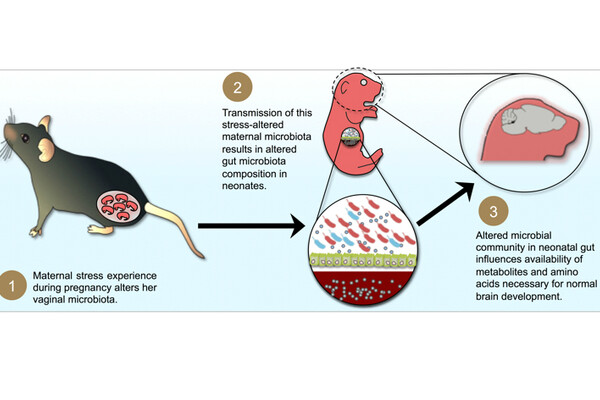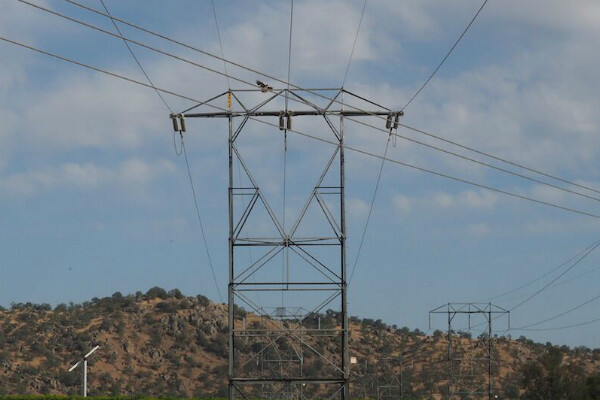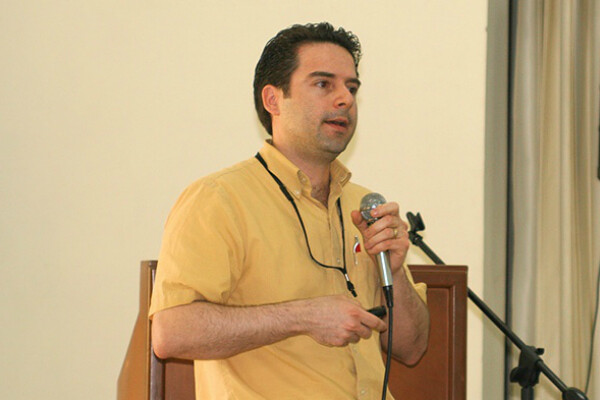4/16
Katherine Unger Baillie
Penn Vet Research Confirms a More Accurate Method for Blood Glucose Testing
For diabetics, a quick prick of the finger can give information about their blood glucose levels, guiding them in whether to have a snack or inject a dose of insulin. Point-of-care glucose meters, or glucometers, are also used in the veterinary world to monitor cats and dogs with diabetes or pets hospitalized for other reasons.
Katherine Unger Baillie ・
Penn: Mom’s Stress Alters Babies’ Gut and Brain through Vaginal Microbiome
Stress during the first trimester of pregnancy alters the population of microbes living in a mother’s vagina. Those changes are passed on to newborns during birth and are associated with differences in their gut microbiome as well as their brain development, according to a new study by University of Pennsylvania researchers.
Katherine Unger Baillie ・
Simple type of evolution not so simple after all
When most people consider the concept of evolution, they may imagine a process by which an organism adapts to a new environment, envisioning, for example, the varied beaks of Darwin’s finches. But the vast majority of evolutionary processes don’t act to change an organism—they try to keep it the same. This type of selection pressure is known as purifying selection.
Katherine Unger Baillie ・
Evolution Is Unpredictable and Irreversible, Penn Biologists Show
Evolutionary theorist Stephen Jay Gould is famous for describing the evolution of humans and other conscious beings as a chance accident of history. If we could go back millions of years and “run the tape of life again,” he mused, evolution would follow a different path.
Katherine Unger Baillie ・
Penn Vet students visit Italy for European take on animal welfare
Seven students from the School of Veterinary Medicine are traveling to Italy this week to see how European societies ensure that their animals—and the foods those animals produce—remain healthy and safe.
Katherine Unger Baillie ・
Penn Historian Discusses the Threat Birds Posed to the Power Grid in 1920s California
In 1913 in Southern California, two 241-mile-long electric lines began carrying power from hydroelectric dams in the Sierra Nevada to customers in Los Angeles—a massive feat of infrastructure. In 1923, power company Southern California Edison upgraded the line to carry 220,000 volts, among the highest voltage lines in the world at the time.
Katherine Unger Baillie ・
Penn Vet Lends Expertise to Improve Colombian Cattle Producers’ Livelihoods
Cattle in the United States are generally managed to either produce milk or to produce beef. However, in most of the world, cattle are counted on to do both in what are called dual-purpose production systems.
Katherine Unger Baillie ・
Penn historian explores how birds posed threat to power grids
The 1920s were still relatively early in the days of widespread access to electric power. The high-voltage lines carrying electricity from hydroelectric dams in the Sierra Nevada to consumers in Los Angeles were considered a magnificent feat of technological innovation, yet this massive and expensive system quickly came under threat from an unexpected source: bird poop.
Katherine Unger Baillie ・
Penn researcher developing new treatments for neglected tropical disease
Leishmaniasis is far from a household word in the United States, but in the tropics, this disease affects roughly 12 million people, with about 2 million new cases every year. The cutaneous form causes unsightly skin ulcers that take months or even years to heal, and can cause major tissue damage.
Katherine Unger Baillie ・
Penn’s Kang Ko Has a Promising Future in Academic Dentistry
By Madeleine Stone @themadstone Kang Ko never planned to become a typical dentist. Long before he came to the University of Pennsylvania School of Dental Medicine to pursue his degree, he fell in love with teaching and research.
Katherine Unger Baillie ・













